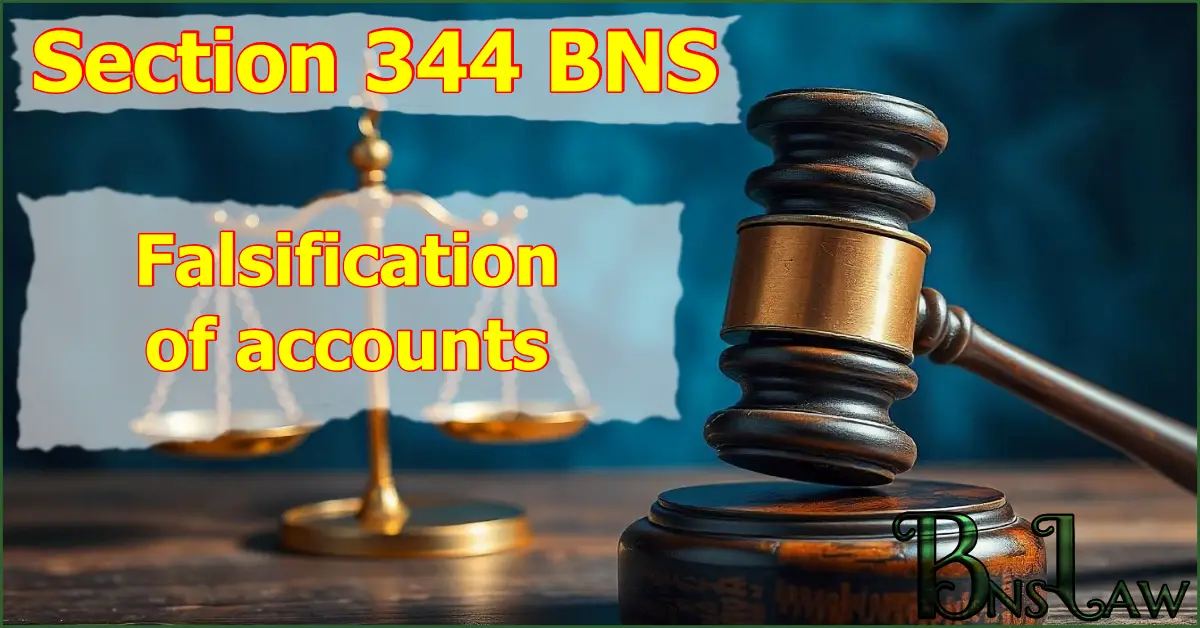Section 344 BNS | BNS 344
Whoever, being a clerk, officer or servant, or employed or acting in the capacity of a clerk, officer or servant, wilfully, and with intent to defraud, destroys, alters, mutilates or falsifies any book, electronic record, paper, writing, valuable security or account which belongs to or is in the possession of his employer, or has been received by him for or on behalf of his employer, or wilfully, and with intent to defraud, makes or abets the making of any false entry in, or omits or alters or abets the omission or alteration of any material particular from or in, any such book, electronic record, paper, writing, valuable security or account,
shall be punished with imprisonment of either description for a term which may extend to seven years, or with fine, or with both.
Explanation— It shall be sufficient in any charge under this section to allege a general intent to defraud without naming any particular person intended to be defrauded or specifying any particular sum of money intended to be the subject of the fraud, or any particular day on which the offence was committed.
READ OTHER SECTIONS OF CHAPTER XVIII — OF OFFENCES RELATING TO DOCUMENTS AND TO PROPERTY MARKS
FAQs of BNS Section 344
-
344 BNS punishment and fine
Punishment and fine under Section 344 of the BNS: Imprisonment for 7 years, or fine, or both.
-
344 BNS cognizable or not
The offence under Section 344 of the BNS is non-cognizable.
-
344 BNS bailable or not
The offence under Section 344 of the BNS is bailable.
-
344 BNS trial court
Offence specified in Section 344 of the BNS is triable by the Magistrate of the first class.
Important Points
- Cognizable Offences: These are offences where a police officer can arrest a person without a warrant.
- Non-Cognizable Offences: These are offences where a police officer cannot arrest a person without a warrant.
- Bailable Offences: These are offences where the accused can get bail from the police station itself. All bailable offences are listed in the First Schedule of the Bharatiya Nagarik Suraksha Sanhita (BNSS).
- Non-Bailable Offences: Offences in which bail is not granted directly from the police station but after hearing the case in the court, the judge decides when bail will be granted. All non-bailable offences are listed in the first schedule of the Bharatiya Nagarik Suraksha Sanhita (BNSS).
- In the above FAQ, “trial court” means the court that has jurisdiction to try the offence.
- In the above FAQ, the expression “Magistrate of the first class” and “Any Magistrate” does not include Executive Magistrates.
Read other Sections of the BNS
Reference Link: New Criminal Laws (BNS), Ministry of Home Affairs







